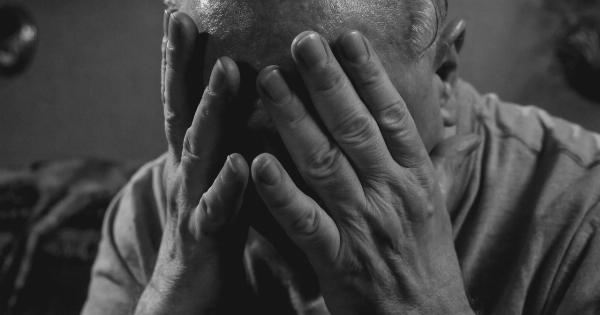Sexual addiction is an often-misunderstood concept that can have a significant impact on an individual’s life.
It is a type of behavioral addiction that involves compulsive and frequent engagement in sexual activities, despite the negative consequences associated with such behavior.
Types of Sexual Addiction
Sexual addiction can manifest in different ways. It can be broadly classified into different subtypes, such as:.
1. Compulsive Masturbation
Compulsive masturbation involves an excessive and repeated urge to masturbate. It may cause significant distress and interfere with an individual’s daily life.
2. Pornography Addiction
Pornography addiction involves an uncontrollable urge to watch pornographic material. It can lead to problems in personal and professional relationships and may cause significant harm to an individual’s mental and emotional well-being.
3. Sexual Compulsivity
Sexual compulsivity involves an uncontrollable urge to engage in sexual activities, with or without a partner.
It may include compulsive masturbation, excessive sexual intercourse, or other sexual behaviors that interfere with an individual’s daily life.
Signs and Symptoms of Sexual Addiction
Sexual addiction can have significant effects on an individual’s life, resulting in social, emotional, and physical problems. Some commonly reported symptoms include:.
1. Excessive Sexual Behavior
Individuals with sexual addiction may engage in sexual activities more frequently than they intend to, leading to disruptions in other areas of life.
2. Preoccupation with Sexual Thoughts
Individuals with sexual addiction may spend significant time thinking about sexual activities or planning how to engage in them, leading to a lack of focus and distractions in other life areas.
3. Impaired Social Relationships
Sexual addiction can significantly affect an individual’s ability to form and maintain healthy relationships with others. It may lead to feelings of guilt, shame, and self-blame.
4. Emotional Instability
Many individuals with sexual addiction may experience significant emotional instability due to distressing thoughts and feelings associated with their sexual behavior.
They may also resort to substance abuse or other maladaptive coping mechanisms to manage their emotions.
Symptoms of Withdrawal
Individuals with sexual addiction may experience withdrawal symptoms when they try to reduce or stop sexual behavior. Some commonly reported withdrawal symptoms include:.
1. Irritability and Mood Swings
Individuals with sexual addiction may experience mood swings, irritability, and other negative emotional states when they try to reduce sexual behavior or abstain from it.
2. Cravings
Sexual addiction can lead to intense cravings for sexual activity, which can impede an individual’s ability to manage their behavior.
3. Physical Discomfort
Individuals with sexual addiction may experience physical discomfort, such as headaches, nausea, or other symptoms when they try to reduce or stop sexual behavior.
Treatment for Sexual Addiction
Treating sexual addiction typically involves a combination of behavioral therapy, medication, and counseling. It may also require treatment for related underlying mental health conditions, such as depression, anxiety, or bipolar disorder.
1. Behavioral Therapy
Behavioral therapy, such as cognitive-behavioral therapy (CBT), can help individuals with sexual addiction manage their problematic sexual behavior.
It typically involves identifying and changing maladaptive thoughts and behaviors that contribute to sexual addiction.
2. Medication
Some medications, such as antidepressants or anti-anxiety drugs, may be helpful in treating associated mental health conditions that contribute to sexual addiction.
3. Counseling
Counseling can help individuals with sexual addiction address underlying emotional or psychological issues that contribute to their problematic behavior. It may involve individual or group therapy sessions with a trained mental health professional.
Conclusion
Sexual addiction is a complex and challenging issue that can significantly affect an individual’s life. It can have a profound impact on mental, emotional, and physical well-being, as well as interpersonal relationships.
Treatment typically involves a combination of behavioral therapy, medication, and counseling, and may require addressing underlying mental health conditions that contribute to addiction. With the right care and support, individuals with sexual addiction can successfully manage their symptoms and improve their quality of life.


























